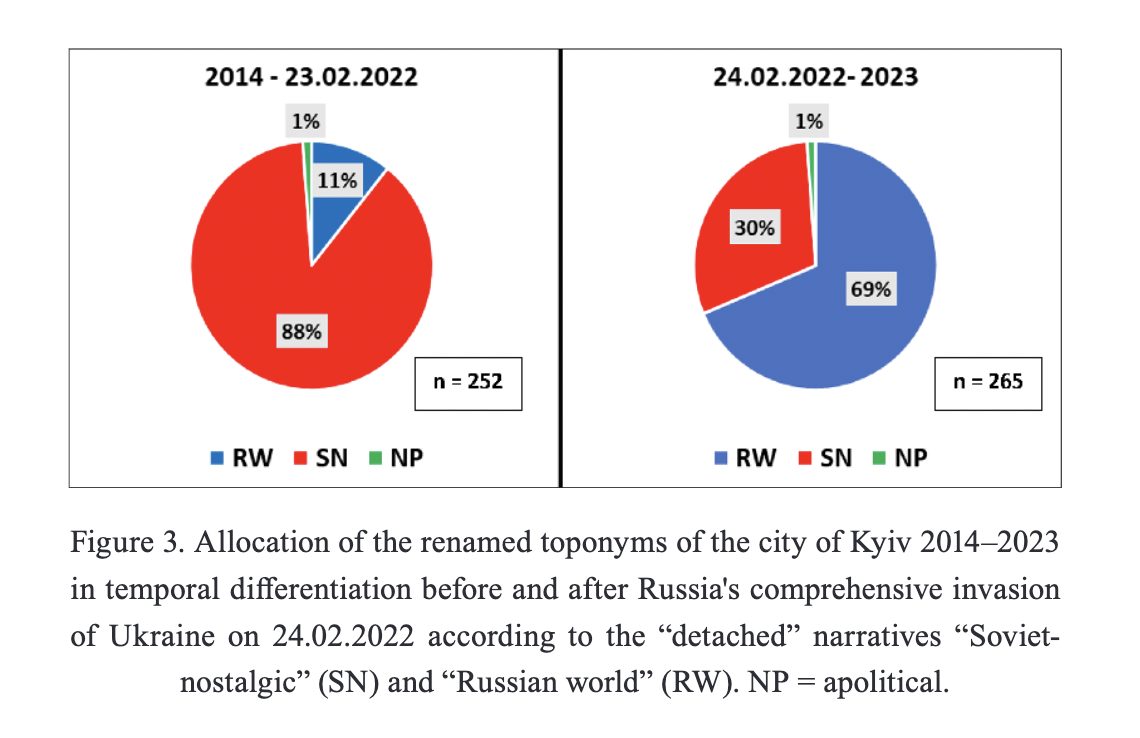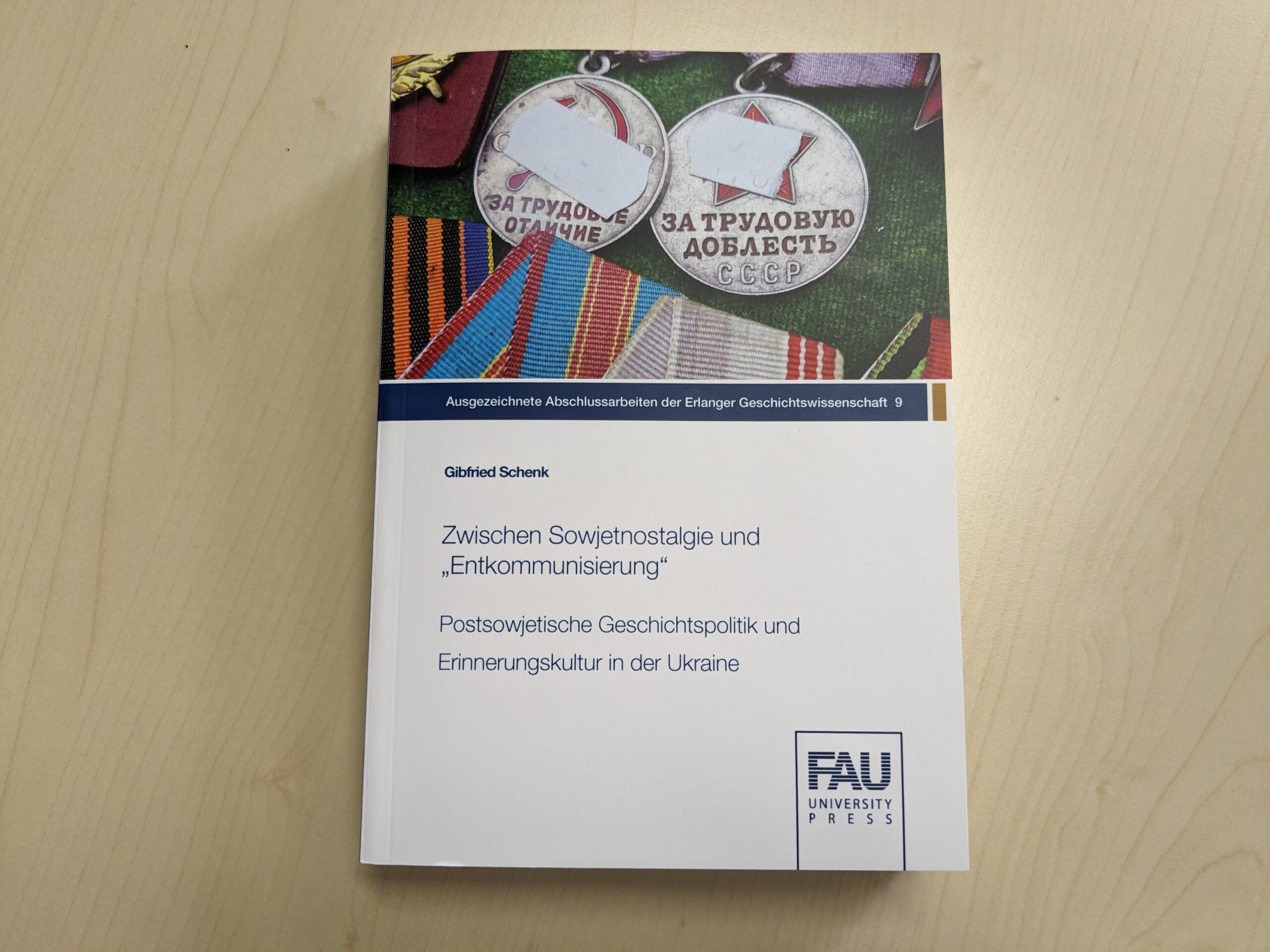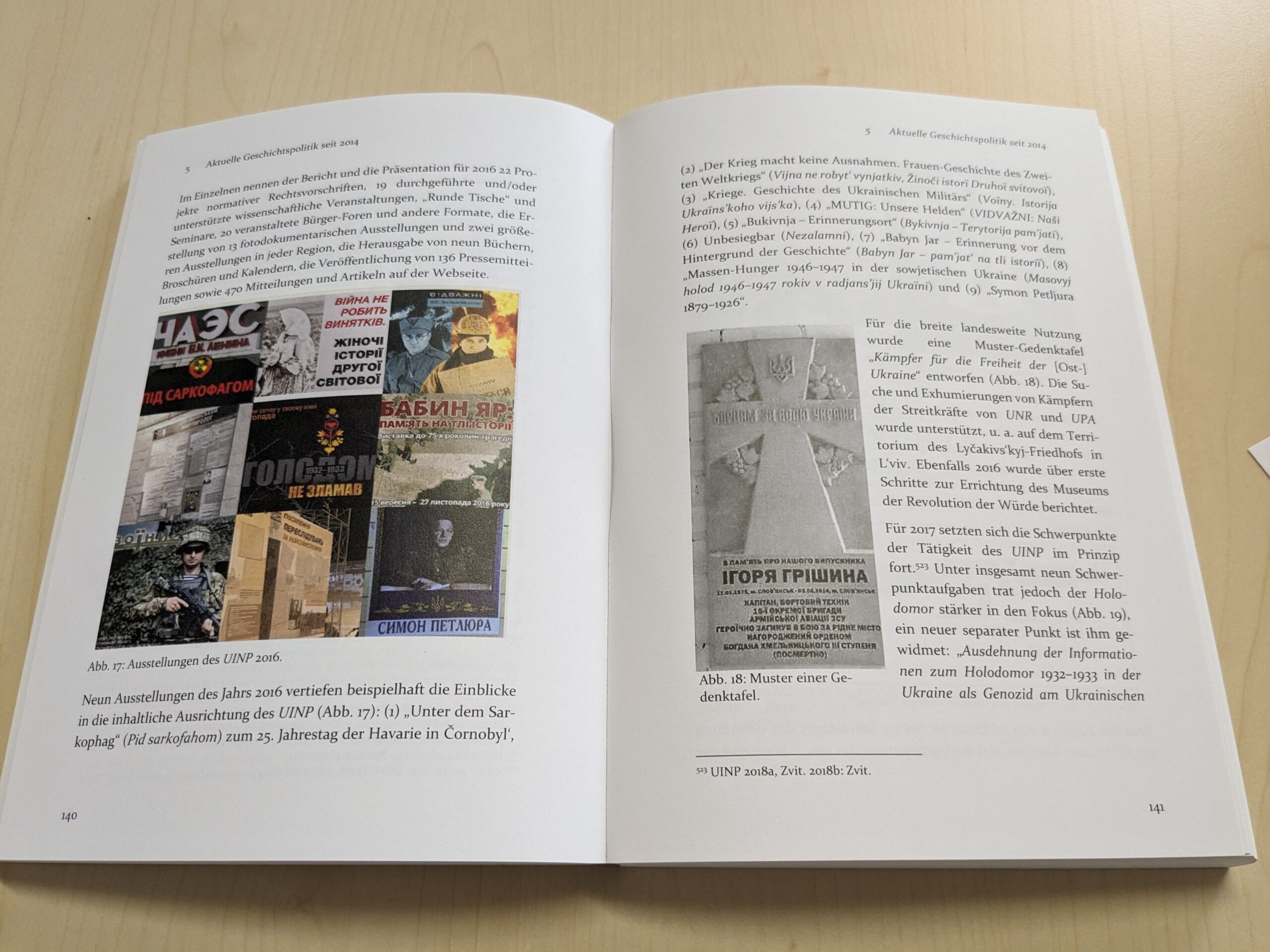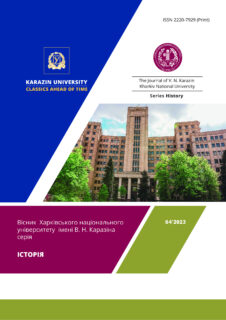The article analyzes the trends in place name changes in Kyiv during two periods: between 2014 and the start of Russia’s full-scale invasion on 24 February 2022, and between 24 February 2022 and the first anniversary of the Russian invasion in 2023. It finds that 58% of names changed were related to the „Soviet nostalgic“ narrative, and 41% to the „Russian world“ narrative. Before 24 February 2022, the „Soviet nostalgic“ narrative was affected the most (88% of renamings), reflecting „decommunization“. After 24 February 2022, the „derussification“ theme dominated, with 69% of removed names representing the „Russian world“ narrative. The new toponyms mainly embody the „national Ukrainian“ narrative (59%) or are non-political (35%). The urbanonymic change has led to a transformation of the urban symbolic order in Ukraine, appropriating these spaces and displacing the Russian imperial legacy, reinforced by the Russian aggression.

This article is a continuation of Gibfried Schenk’s research, the results of which were previously published in his book „

The book focuses on the country’s historical policy from 1991 to the end of President Petro Poroshenko’s term in spring 2019. It examines three narratives shaping Ukrainian culture of remembrance: continuity of Ukrainian history, the Holodomor as genocide against the Ukrainian people, and the national-Ukrainian narrative. The main part delves into post-Euromaidan historical policy, detailing its actors, impact on society, changes in monuments and place names, and effects on public space. Concluding chapters discuss its influence on collective memory, international perception, and offer insights into Ukrainian historical and general politics.





